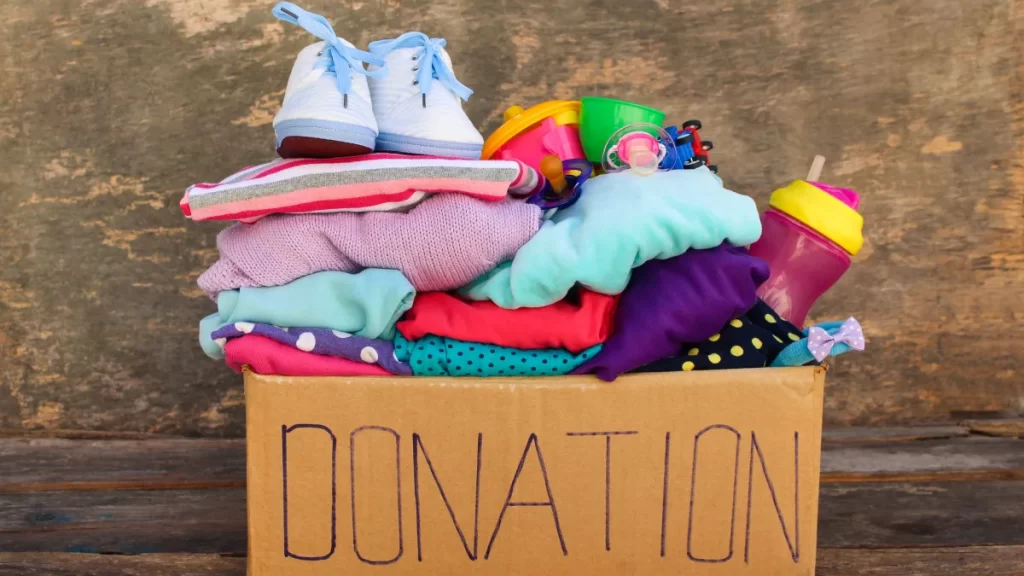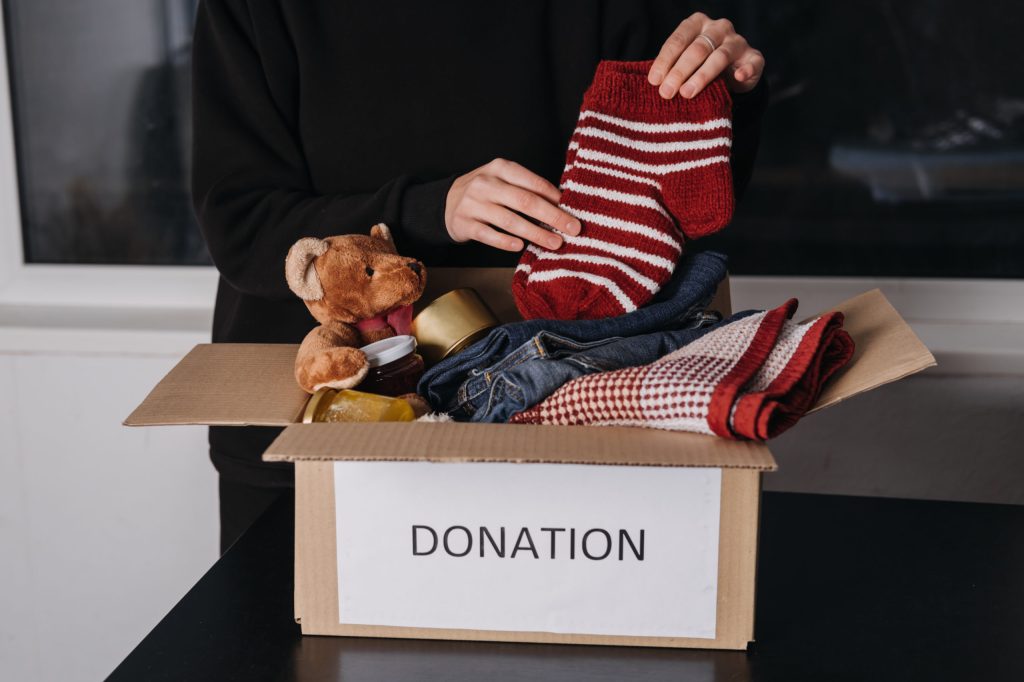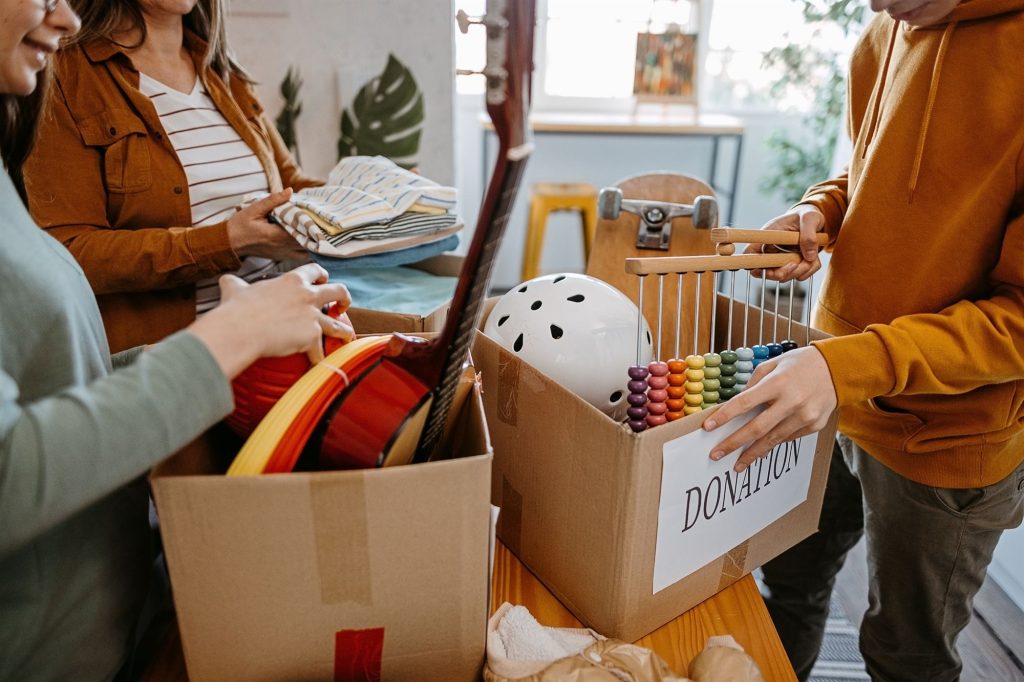donation pickup for children
Donation pickup for children provides a convenient and impactful way to declutter your home while making a positive difference in the lives of young ones in your community. By scheduling a donation pickup specifically tailored for children, you can easily donate items like clothing, toys, books, and other essentials to charitable organizations that cater to children in need. This service not only helps provide essential items to children but also promotes sustainability by diverting usable goods from landfills. Whether you’re moving, downsizing, or simply tidying up, donation pickup for children offers a hassle-free solution for giving back and supporting meaningful causes that directly benefit young ones in your community. In this article, we delve in donation pickup for children.
What are donation pickup charities
Donation pickup charities encompass a variety of organizations dedicated to collecting donated items from individuals and households. These charities operate with the mission of redistributing these items to those in need, supporting various beneficiary groups such as families facing housing insecurity, individuals with disabilities, veterans, and marginalized communities. They accept a wide range of donations, including furniture, household goods, clothing, electronics, and more, allowing donors to contribute items they no longer need or want.
These charities often have a broad geographical reach, with some operating nationally and others focusing on specific regions or states. Despite their diverse coverage areas, they all share a commitment to providing essential services and support to their communities. Through thrift stores, donation centers, and pickup services, these organizations generate revenue to fund programs such as job training, medical care for veterans, and financial assistance for low-income individuals and families. By harnessing the generosity of donors and the dedication of volunteers, donation pickup charities play a crucial role in addressing social and economic inequalities.
Scheduling a donation pickup with these charities is typically straightforward, with options for online scheduling or phone calls. They offer flexibility in pickup times, making it convenient for donors to contribute while accommodating their busy schedules. Furthermore, many of these charities provide donation receipts and guidance on tax deductions, incentivizing donors to give while also receiving potential tax benefits. Overall, donation pickup charities serve as vital conduits for redistributing resources and fostering community support, empowering individuals to make a positive impact and improve the lives of those in need.

Empowering Communities: Donation Pickup Organizations Making a Difference
In the realm of charitable endeavors, donation pickup for children stands out as a vital service offered by various organizations. These entities strive to ensure inclusivity in their services, catering to the diverse needs and communities they serve. By accepting a wide range of items, from furniture and household goods to clothing and electronics, they empower donors to contribute effectively to various causes, including those benefiting children.
The donations collected through these initiatives serve a multitude of beneficiary groups, encompassing families seeking housing, individuals with disabilities, veterans, and those facing economic hardships. Through their unwavering support of initiatives such as job training, community outreach, and medical care, these organizations actively contribute to the betterment of children’s lives and the broader community.
Geographical coverage and operational support vary among these organizations, with some operating nationally and others focusing on specific regions or states. However, regardless of their scope, these organizations are united in their dedication to providing essential services to those in need. Whether through job placement programs, medical assistance for veterans, or financial support for low-income families, they tirelessly work to uplift communities and improve lives. Donation pickups for children, along with other avenues like thrift stores, serve as vital channels for raising funds to sustain these programs, ensuring that assistance reaches those who need it most.
Scheduling a donation pickup for children is made convenient by these organizations, with options for online scheduling or phone calls specifically tailored to accommodate the needs of families and children in the community. They offer flexibility in pickup times, allowing donors to choose slots that suit their busy schedules, ensuring a hassle-free donation process. Additionally, they provide donation receipts and guidance on estimating the tax-deductible value of donated children’s items, encouraging donors to contribute while also benefiting from potential tax deductions. Overall, these organizations facilitate a seamless process for individuals to donate their unwanted children’s items and make a positive impact on the lives of young ones in their communities.
Donation pickup for poor children
Donation pickup initiatives play a vital role in alleviating the challenges faced by poor children by providing them with access to essential items and resources. Through the generosity of donors, children from economically disadvantaged backgrounds can benefit from receiving clothing, furniture, school supplies, and other necessities. These donations not only fulfill immediate needs but also contribute to enhancing their overall well-being and quality of life.
Access to basic necessities is a fundamental aspect of ensuring the health and dignity of children living in poverty. Donation pickups enable individuals and families to donate items they no longer need, which can then be redistributed to those in need. For poor children, receiving clothing, shoes, and school supplies through donation pickups can make a significant difference in their daily lives. These items not only fulfill practical needs but also boost their self-esteem and sense of belonging within their communities.
Furthermore, donation pickups can help alleviate financial burdens for families struggling to make ends meet. By receiving donated items such as furniture, household goods, and electronics, families can redirect their limited resources towards other essential expenses, such as food, healthcare, and education. This indirect support provided through donation pickups can have a profound impact on poor children, enabling them to live healthier, more stable lives and pursue opportunities for growth and development.

Extending Aid: Donation Pickup for Children
Local and far-reaching donation pickup initiatives can both contribute significantly to supporting children in need. Local donation pickup efforts focus on addressing immediate needs within the community by collecting donations from nearby residents and redistributing them to local organizations serving children in need. These initiatives foster a sense of community involvement and allow donors to directly witness the impact of their contributions on local children.
On the other hand, far-reaching donation pickup programs extend their reach beyond local communities to serve children in remote or underserved areas. These initiatives often collaborate with national or international organizations to collect donations from a wider geographic area and distribute them to regions where resources are scarce. By leveraging broader networks and logistics capabilities, far-reaching donation pickup efforts can reach children in rural areas, refugee camps, or disaster-stricken regions, providing them with essential items and support.
Ultimately, both local and far-reaching donation pickup initiatives play complementary roles in supporting children in need. Local efforts provide immediate assistance to children within the community, fostering a sense of solidarity and mutual support among residents. Meanwhile, far-reaching initiatives extend their reach to serve marginalized or remote populations, ensuring that children in underserved areas receive the assistance they need to thrive. Together, these efforts contribute to creating a more equitable and compassionate society where every child has the opportunity to grow and succeed.
Making a Difference: Furniture Donation Tips for Kids’ Rooms
Thinking of upgrading your child’s bedroom or clearing out clutter? Donating furniture is a great way to give back while refreshing your space. Many charities welcome smaller items like nightstands, chairs, and desks, but it’s best to check first, especially for heavier pieces. Some charities accept larger items such as gently-used beds and desks, while others focus on smaller pieces like mirrors and office chairs.
Online platforms offer a convenient way to find charities that suit your needs without making multiple calls. Simply enter your location to find nearby charities that offer free pickup services. Plus, your donation is often tax-deductible, so be sure to keep your receipt.
Before donating, ensure your furniture is in good condition and meets the charity’s guidelines. Most charities have lists of acceptable items on their websites. If unsure, reach out directly to the charity for clarification. Consider donating rather than selling through online marketplaces or consignment, and feel good knowing your donation benefits kids in need.

What to Know About Donating Books for Kids
Donating books can brighten a child’s world, but it’s important to choose the right ones. While many places accept book donations, they usually have rules about the condition and type of books they can take. Libraries, especially, want books that are in good shape and not too old or damaged.
The best books to donate are ones that kids will enjoy and learn from. Try to avoid donating textbooks or encyclopedias, as they might be too hard for kids to understand or out of date. Magazines are usually not accepted either, but there are lots of other places you can give them to.
If your books aren’t suitable for donation, don’t worry! There are other places that might want them. Hospitals, shelters, and nursing homes often appreciate books for kids. You can also sell them at a used bookstore or share them with friends. And if you’re feeling creative, you can turn your old books into art projects or start a book swap with other kids.”
What to Know About children’s donation pickup
Do your kids have more clothes than they need? It happens! But clearing out their closets can make space for new adventures and help other kids in the process. Whether you’re tidying up for a move or just simplifying, donating their clothes to charity is a great way to make a difference.
Charities gladly accept kids’ clothes, shoes, and accessories like hats and bags. But remember, it’s important to donate items that are in good condition. Clothes that are stained, torn, or damaged may not be suitable for donation, so it’s best to check them before giving.
Local shelters, community centers, and organizations that support families in need often accept donations. And if you’re looking to give back in a different way, consider selling or consigning pricier items for charity or donating to organizations that aim to reduce waste by reselling clothes.
Tips for donation pickup for children
Before a big move or just to declutter, donating items is a great way to help others and make room for new adventures. But before you schedule a pickup or drop-off, here are some tips for donation pickup for children in a right way.
Know what to donate. Organizations want items in good condition, so make sure your donations are clean, usable, and free of serious defects. If something isn’t suitable for donation, look for responsible disposal methods like textile recycling bins or donating to your local animal shelter.
Research your charity options. Different charities have different ways of making an impact, so it’s worth doing some research to find one that aligns with your values. Check out their website to learn more about how they operate and if they’re available in your area.
Decide what to donate honestly. If you haven’t used or worn something in a few years, or if it doesn’t “spark joy,” it’s probably time to donate it. Consider if items fit, suit your style, or if you have duplicates. For sentimental items, ask yourself if someone else could benefit from them more.
Prepare your items. Clean any clothing, furniture, or housewares you plan to donate, and safely pack them for transport. Leave furniture uncovered so it can be inspected easily.
Schedule your pickup in advance. Don’t wait until the last minute to schedule your pickup. Research your options early and give yourself plenty of time between pickup day and moving day, especially for large items. Some organizations have strict guidelines on what they’ll accept, so plan accordingly.
How to Schedule Your children’s donation pickup
Scheduling a donation pickup for kids’ items is a simple process that starts with finding a charity that offers free pickup services and has a location near you. Once you’ve identified a suitable charity, it’s important to contact them to confirm that they still provide this service, as some charities may have temporarily halted their pickup services due to the pandemic or other factors. Additionally, ensure that the organization accepts the items you intend to donate by checking their website for a list of accepted items.
Before scheduling your pickup, take the time to prepare your donation by going through the “do” steps outlined in the donation guidelines. This may involve sorting through your items, cleaning them, and packaging them appropriately for pickup. Once your donation is ready, schedule a pickup appointment with the charity and make sure to be home during the scheduled time to hand off your donation to the pickup crew.
If you prefer to drop off your donation instead of scheduling a pickup, inquire about the options available at the charity. Some charities offer drive-up drop-off services for quick and convenient donation hand-offs, while others provide bins and boxes for contactless drop-offs. Regardless of the method you choose, ensure that your donation is properly labeled and organized, and avoid including any items that may not sell or are not suitable for donation.
Ultimately, donating through charities that offer pickup services is a rewarding way to declutter your home and give back to those in need. By scheduling a donation pickup, you can give new purpose to your unwanted items and make a positive impact in your community.
Read more: From Food Scarcity to Abundance: Transforming Lives Through Meal Programs





